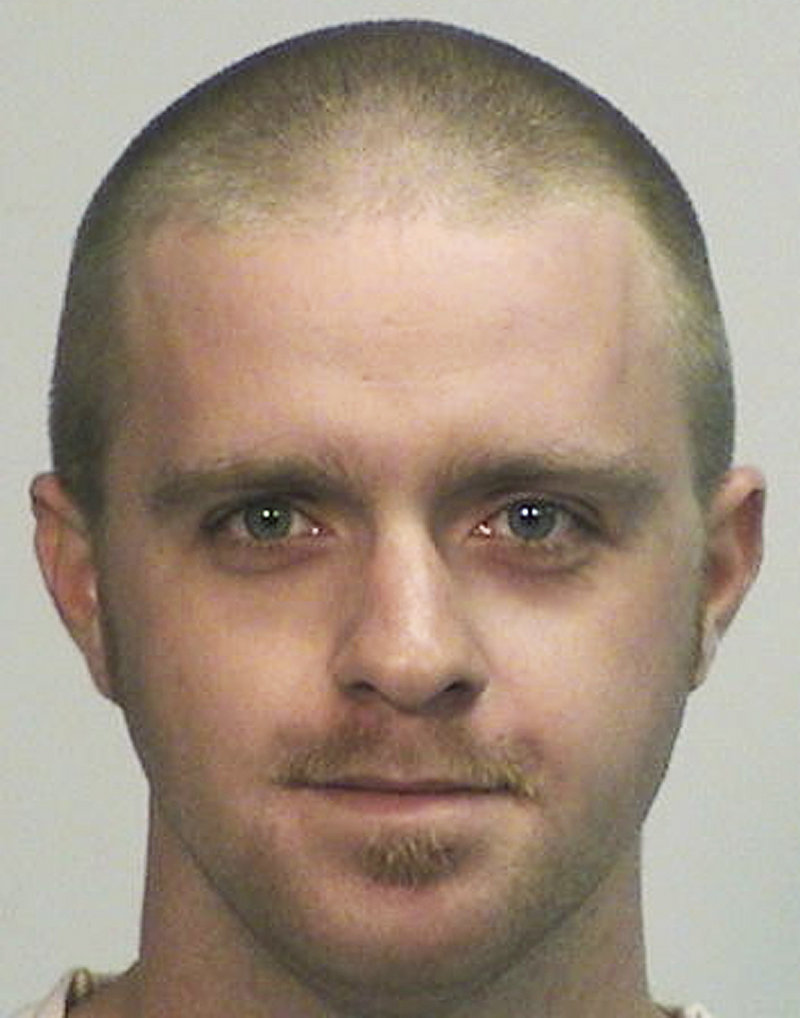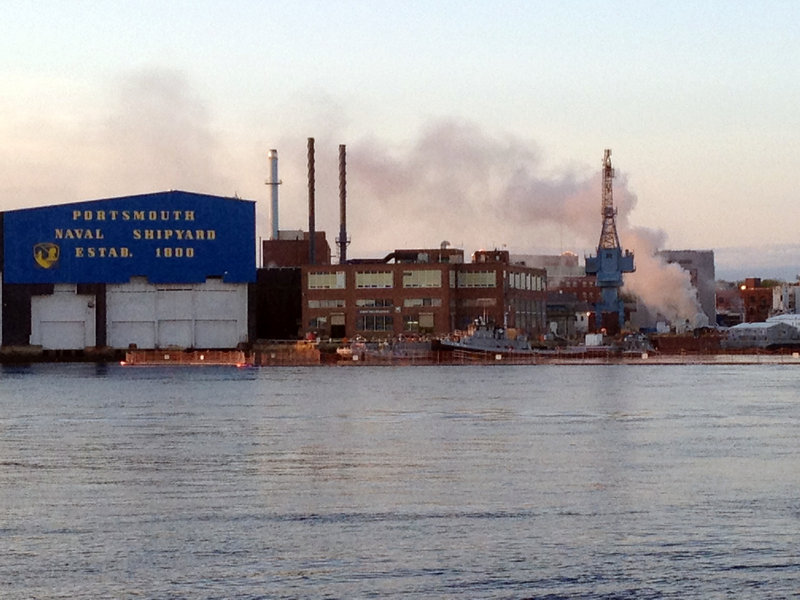PORTLAND — Navy Lt. Richard McMunn went into the burning nuclear submarine, descending through intense heat and black smoke that obscured his vision.
When he reached the deck, he fell into a hole that was 5 to 6 feet deep. He felt his ribs break. The pain was so intense that he didn’t immediately realize he had also hurt his knee.
McMunn tried to crawl forward but was too injured to continue. Then, the knowledge that he had less than 20 minutes of air left and his fear of dying in the blaze drove him to climb out of the USS Miami.
“I come to you today as a fortunate man. Unlike victims of similar crimes, I am still alive,” McMunn said Wednesday at a detention hearing for Casey James Fury, who is charged with arson in connection with two fires at the Portsmouth Naval Shipyard in Kittery.
McMunn asked that U.S. Magistrate Judge John Rich III order Fury held without bail, saying Fury does not seem to understand how dangerous his actions were.
McMunn said he was confined to a chair for three weeks after the fire on May 23, unable to move or lie down. He couldn’t walk for a month and he is still bruised. He said the left side of his rib cage is permanently disfigured and his knee will likely require surgery.
Rich determined that Fury, 24, of Portsmouth, N.H., should remain in jail because there are no conditions that could adequately ensure the safety of others if he is free.
The judge noted that Fury witnessed the consequences of the first fire, set inside the sub on May 23, yet apparently set another fire on June 16, outside the sub.
The judge also expressed concern about Fury’s ability to cope with anxiety, given that he will be under scrutiny as the case moves forward and he faces a possible sentence of life in prison.
The fire on May 23, which burned into the next morning, caused $400 million worth of damage to the submarine. Seven people were injured.
The smaller fire on June 16 was set to alcohol wipes in the dry dock cradle that holds the submarine. Fury, a civilian who worked at the shipyard as a painter and sandblaster, told investigators that he set it because he was anxious and wanted to leave work.
He got anxious after texting a former girlfriend because he believed she was seeing another man, according to an affidavit filed in the case.
While Fury initially denied involvement in the May 23 fire, he eventually said he had set it to get out of work, according to the affidavit.
During Wednesday’s hearing, Special Agent Brett Boley of the Naval Criminal Investigative Service testified that Fury also admitted to pulling a false fire alarm on June 19.
“He said he didn’t think his boss would let him get out of work if he said he wanted to go home,” Boley said.
Federal Defender David Beneman compared Fury to a middle school student who pulls a fire alarm to escape a situation without understanding the possible danger.
Beneman noted that Fury sought in-patient mental health treatment — he checked himself in for two days after the fire on June 16 — and is doing better since changing his medications.
Gregory Giblin, a federal probation officer, recommended that Fury be released on bail. James and Margaret Fury, the defendant’s father and stepmother, testified that Casey Fury could stay with them at their home in Eliot and they would look after him.
But Assistant U.S. Attorney Darcie McElwee said Fury put his desire to leave work early above Navy property and the lives of people at the shipyard. She said he was well aware of the damage caused by the first fire.
“What kind of person knows all that and sets another fire so he can leave early? I think that speaks volumes,” she said.
Staff Writer Ann S. Kim can be contacted at 791-6383 or at:
akim@pressherald.com
Twitter: AnnKimPPH
Send questions/comments to the editors.



